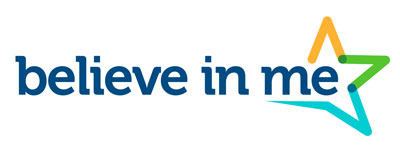Back-to-School Advocacy: Championing Equal Opportunities in Education for a Brighter Future
Publish Date: September 1, 2025 00:00
As the school year kicks off, the conversation around equal educational opportunities is more relevant than ever. With back‑to‑school advocacy at the forefront, many are asking, “What are equal opportunities in education?” and “How can I effectively advocate for education policy reform?” Additional queries like “Why is it crucial to promote social justice in schools?” and “What actionable steps can activists, educators, and parents take to get involved?” dominate search results. In this post, we tackle these questions head-on and explore how initiatives pioneered by Believe in Me are reshaping educational landscapes.
This blog post uncovers the impact of back‑to‑school advocacy and explains how equal opportunities ignite hope and success among youth while addressing controversial education policies. Buckle up for an insightful, data-backed tour through real-life case studies and community strategies that prove educational reform is not just necessary—it’s achievable.
How Back‑to‑School Advocacy Empowers Youth
Education is a powerful catalyst that can transform individual lives and entire communities. When we speak of back‑to‑school advocacy, the focus is on ensuring that every student, regardless of background, has access to quality education and the resources they need to thrive. This advocacy means dismantling systemic barriers and championing policies that promote equal opportunities. According to research by the Education Week (Education Week, 2023), schools that implement equitable education policies witness significant improvements in student achievement and social cohesion.
But what does it all mean for our youth? At Believe in Me, we see firsthand how strategic advocacy initiatives help bridge the gap between policy and practice. Whether it’s through mentorship programs or educational workshops, every effort translates to empowered youth ready to challenge the status quo and contribute to their communities. In short, back‑to‑school advocacy is not merely about reopening classrooms—it’s about rewriting the narrative to ensure social justice through equal opportunity education.
Case Studies of Successful Youth Programs
Case Study 1: The Equal Access Initiative at Believe in Me
One standout example is the Equal Access Initiative spearheaded by Believe in Me. Faced with a patchwork of educational resources often skewed by socioeconomic factors, this initiative targets underserved communities with programs designed to level the educational playing field. Participants receive not only academic tutoring but also mentorship and mental health resources. Such comprehensive support has resulted in noticeable improvements in school performance and overall student wellness.
Consider the story of Jamal, a middle school student who was once on the fringes of academic success due to limited resources at his local school. Through the Equal Access Initiative, Jamal not only improved his grades but also rediscovered his passion for science. His success is a testament to how targeted educational reform can change lives. More details on similar initiatives can be found on the Believe in Me website.
Case Study 2: The Future Leaders Program
Another transformative program is the Future Leaders Program, which focuses on empowering high school students through leadership training and civic engagement. This program, initiated in partnership with local advocacy groups and educational experts, offers workshops on public speaking, policy analysis, and community organizing. The result? Students go beyond the classroom to become active proponents of educational reform.
Take for instance Sophia, whose involvement in the Future Leaders Program enabled her to spearhead a school board petition for improved STEM education accessibility. Her leadership not only garnered media attention but also resulted in legislative changes at her district’s level. This case highlights that back‑to‑school advocacy, when executed with strategic intent, can catalyze broader educational reforms that benefit entire communities.
The Role of Back‑to‑School Advocacy in the Community
So, why is back‑to‑school advocacy such a hot topic in education policy discussions? The answer lies in its foundational principle: every child deserves an equal opportunity to succeed academically. In communities across the nation, unequal access to quality education perpetuates cycles of poverty and social exclusion. Effective advocacy addresses these issues by pushing for policies that provide transparency, accountability, and support within educational systems.
The ripple effect of changed educational policies is profound. Improved education leads to better career prospects, reduced crime rates, and healthier communities overall. Back‑to‑school advocacy initiatives often prompt a collaborative approach, bringing together educators, parents, and activists. This synergy has already prompted policy discussions and reforms noted by education experts at sources like the U.S. Department of Education (U.S. Department of Education, 2023). Programs championed by Believe in Me further illustrate how community-based efforts build trust and drive systemic change.
The ongoing conversations around social justice in schools are a reminder that equal opportunities in education are not merely aspirational—they are essential. As activists and educators debate, refine, and implement policies, they provide a roadmap for sustainable reform that aligns with the values of Believe in Me.
Actionable Ways to Get Involved in Back‑to‑School Advocacy
Ready to be part of the change? Here are practical steps for activists, educators, and parents who want to champion equal opportunities as the new school year begins:
- Educate Yourself: Stay updated on the latest education policy trends and research. Websites like Education Week offer insightful resources, while organizations like the U.S. Department of Education provide crucial data.
- Engage with Local Advocacy Groups: Join or volunteer with groups dedicated to educational reform. By collaborating with established networks, you can contribute to meaningful discussions and policy changes.
- Attend Community Meetings and Webinars: Look for local forums and online events hosted by organizations like Believe in Me. These gatherings are a great way to learn about challenges and possible solutions in your community.
- Amplify Your Voice: Use your social media platforms to share success stories and policy updates. The more visibility these narratives receive, the more they motivate action.
- Support Inclusive Education Programs: Direct donations, time, or resources to initiatives that focus on leveling the educational playing field, much like the Equal Access Initiative and the Future Leaders Program.
By taking these steps, you not only educate yourself but also help mobilize a network of advocates for change. As back‑to‑school advocacy gains momentum, every action counts in moving towards a future where equal opportunities in education are a reality.
Conclusion: Ignite the Change Through Advocacy
In summary, back‑to‑school advocacy is not simply about the return to classrooms—it’s a movement that demands equal opportunities and robust education policies for all. Our youth deserve environments where they can flourish academically and personally, without being hindered by outdated or unequal systems.
The case studies highlighted here demonstrate how community efforts, like those led by Believe in Me, lead to tangible improvements in educational outcomes. Whether through the Equal Access Initiative or the Future Leaders Program, these examples show that every step toward equitable education is a leap toward a more just society.
For activists, educators, and parents alike, getting involved in back‑to‑school advocacy means sparking a transformation that extends far beyond the school walls—it impacts entire communities. Now is the time to engage in education policy discussions and champion equal opportunities. Let’s ignite the change together.
Citations: Education Week, 2023; U.S. Department of Education, 2023.
Get to know more about Believe in Me and Help a Kid Today
References
Education Week, 2023; U.S. Department of Education, 2023.






